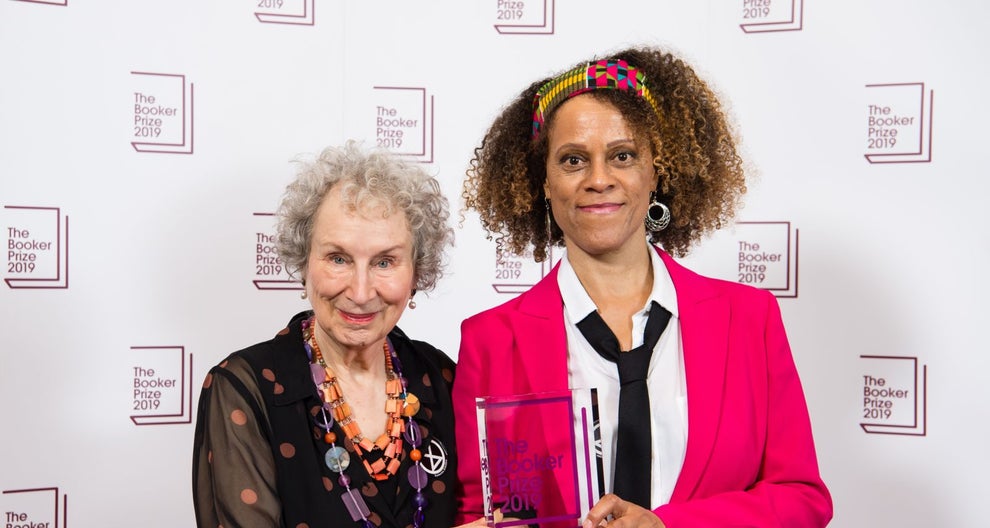The Man Booker Prize’s 2019 award came with a plot twist all of its own. The prize, which celebrates the greatest fictional novels of the year, defied its own rules to jointly award two authors who will split the £50,000 reward. Margaret Atwood’s The Testaments, a belated sequel to the 1985 seminal work of feminist writing The Handmaid’s Tale unsurprisingly won, yet the veteran author had some company in the spotlight. The Nigerian-British author Bernardine Evaristo’s exploration of black womanhood Girl, Woman, Other, made her the first black woman to win the prize in the competition’s history. In a press release following their joint victory, Atwood aptly quoted Lewis Carroll’s Alice in Wonderland to say, ‘All have won, and all must have prizes.’ And indeed, they did.
The choice to bestow the prestigious award on two authors came as a great surprise, not least to the organisers themselves. As guests began to arrive, the winner was yet to be decided. The panel went back to the organisers twice with their decision to split the prize, only to be told this would not be possible. But, as all great fiction proves, authors do not have to work in the realm of possibility and so the mutinous panel went ahead with their decision regardless. While not entirely unprecedented, the prize had been split twice before in 1974 and 1992, and rules were brought in to prevent a future split.
Notably, both winning novels are focused on issues of womanhood and the power of female voices. Evaristo’s Girl, Woman, Other explores the female identity from 12 differing perspectives, including a non-binary narrator, as it relates the joys and struggles of black womanhood in Britain whilst drawing upon Evaristo’s own experiences as a black lesbian in the 1980s. This is the 8th book by the 60-year-old author and the significance of her win was evident in her press conference speech, as she remarked the ‘bittersweet’ victory of being the first black female winner in the award’s 50th year, certainly suggesting such a win should have happened sooner. Atwood’s The Testaments similarly features multiple female narrators as it returns to the dystopia of Gilead some 15 years after the events of the cult novel, and its popular television adaptation, The Handmaid’s Tale.
Atwood’s win broke furthers records by making her the oldest recipient of the award, at 79, and only the fourth person to win the award twice having previously won for the 2000 novel The Blind Assassin. Amongst the final six authors shortlisted, Atwood was not the only big name as Salman Rushdie made an appearance on the list with his work Quichotte. The inclusion of such noted literary legends was not without its controversy as many have voiced criticism at the awards for being reluctant to consider new talent and for being out-of-touch with the interests of readers at large. After all, with the exclusion of the recently released The Testaments, the highest-selling novels from the longlist failed to make the final shortlist.
However, attempts to make progressive changes have been put in place. The judging panel for this year’s award consisted of only one man and four women, two of whom were people of colour. This change at the judging level undoubtedly helped pave the way for the first black female author’s win, and of course the decision to award two women, helping to prove that the Man Booker Prize isn’t such a man’s world after all.
Image Credit: Getty Images

